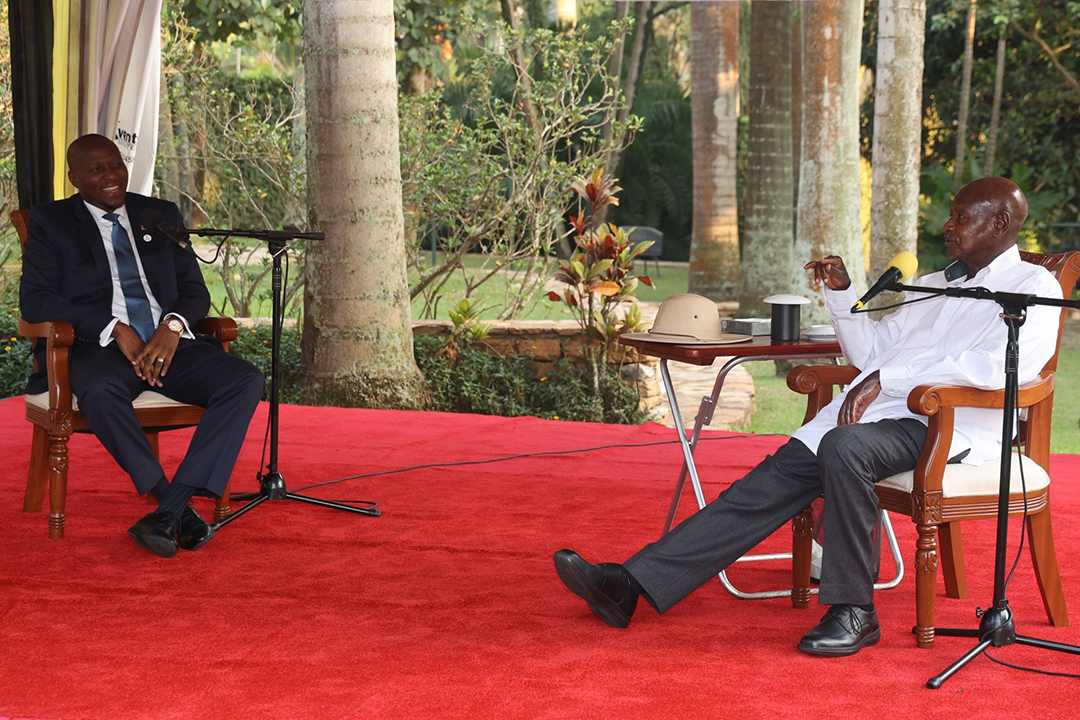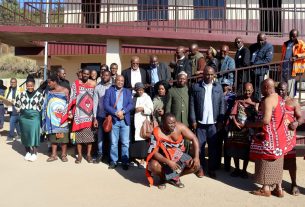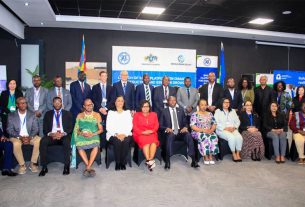BY MBONO MDLULI
MBABANE – Uganda’s President Yoweri Museveni has noted similarities between SiSwati and Luganda, highlighting the linguistic and cultural connections between Eswatini and Uganda.
This observation came during a meeting with Eswatini’s Prime Minister, Russell Mmiso Dlamini, held on January 12, 2025, at the Sipeke Presidential Palace in Kampala. The meeting was part of the Extraordinary Summit of AU Heads of State and Government for the Post-Malabo Comprehensive Africa Agriculture Development Programme (CAADP).
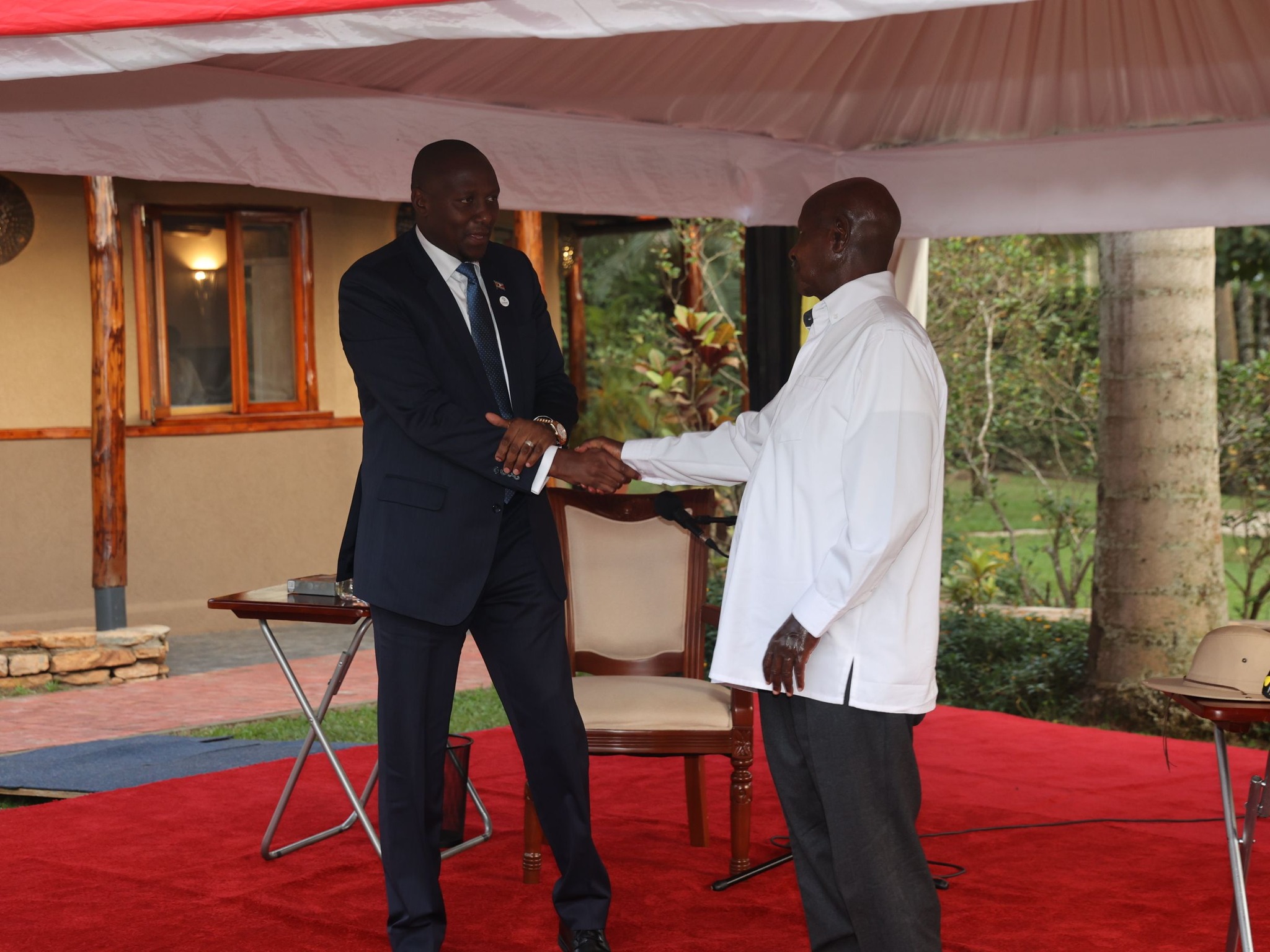
In a light-hearted exchange, President Museveni asked how “home” is pronounced in SiSwati. Upon hearing the word “ekhaya,” Museveni compared it to Luganda’s “ekha.” Prime Minister Dlamini responded warmly, saying, “Indeed, we are one people.”
The linguistic comparison continued with Museveni noting that Luganda’s word for “woman,” “mukazi,” resembles the IsiZulu “umfazi,” while in SiSwati, the term is “umfati.” Further examples included “mwana” (child in Luganda) compared to “umntfwana” in SiSwati, and “mukono” (arm in Luganda) mirroring “umkhono” in SiSwati.
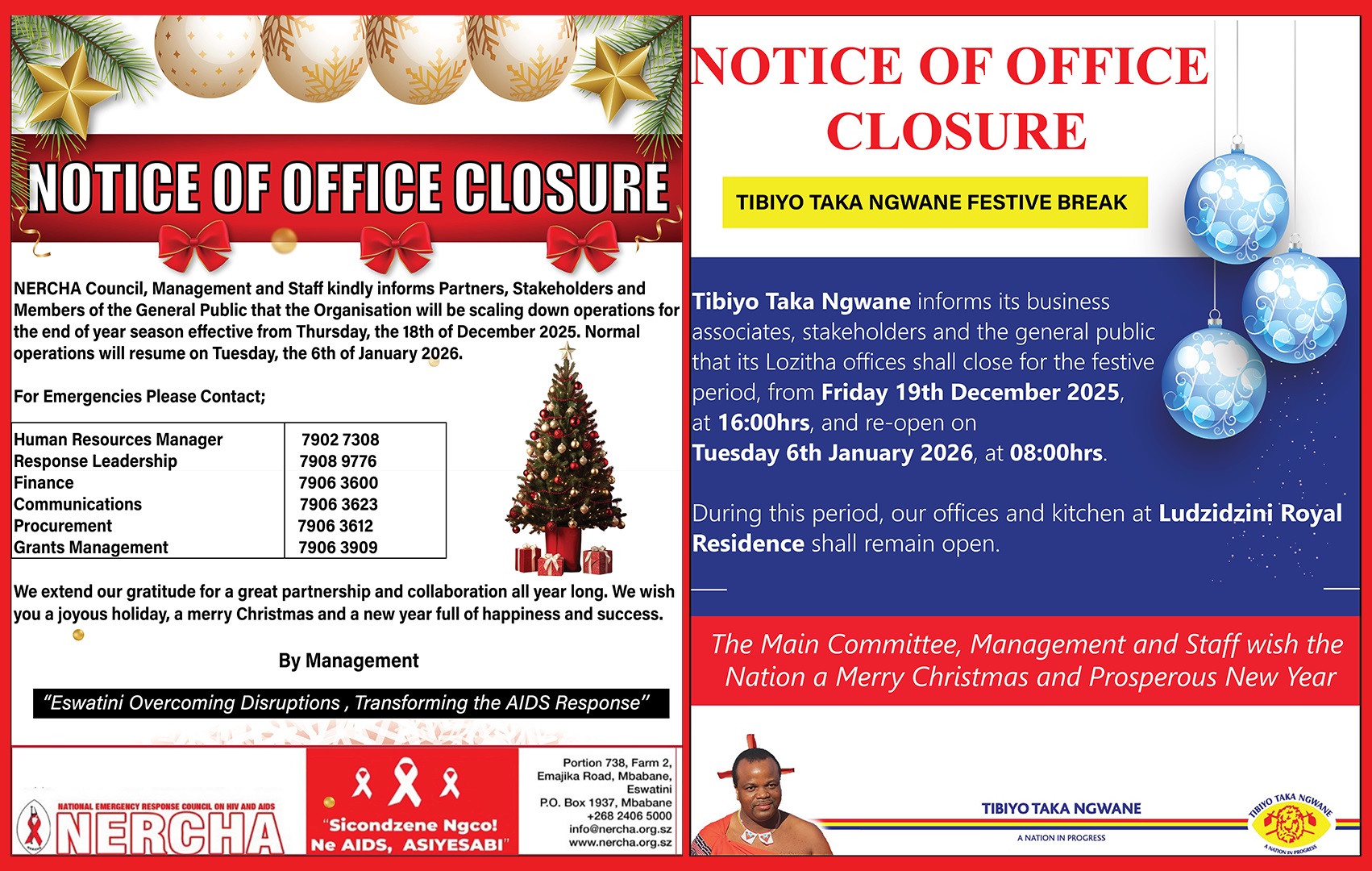
The two leaders also discussed pressing continental issues, emphasizing food sovereignty and the importance of sustainable agriculture. President Museveni’s passion for achieving food security resonated with Eswatini’s ongoing efforts in the same direction.
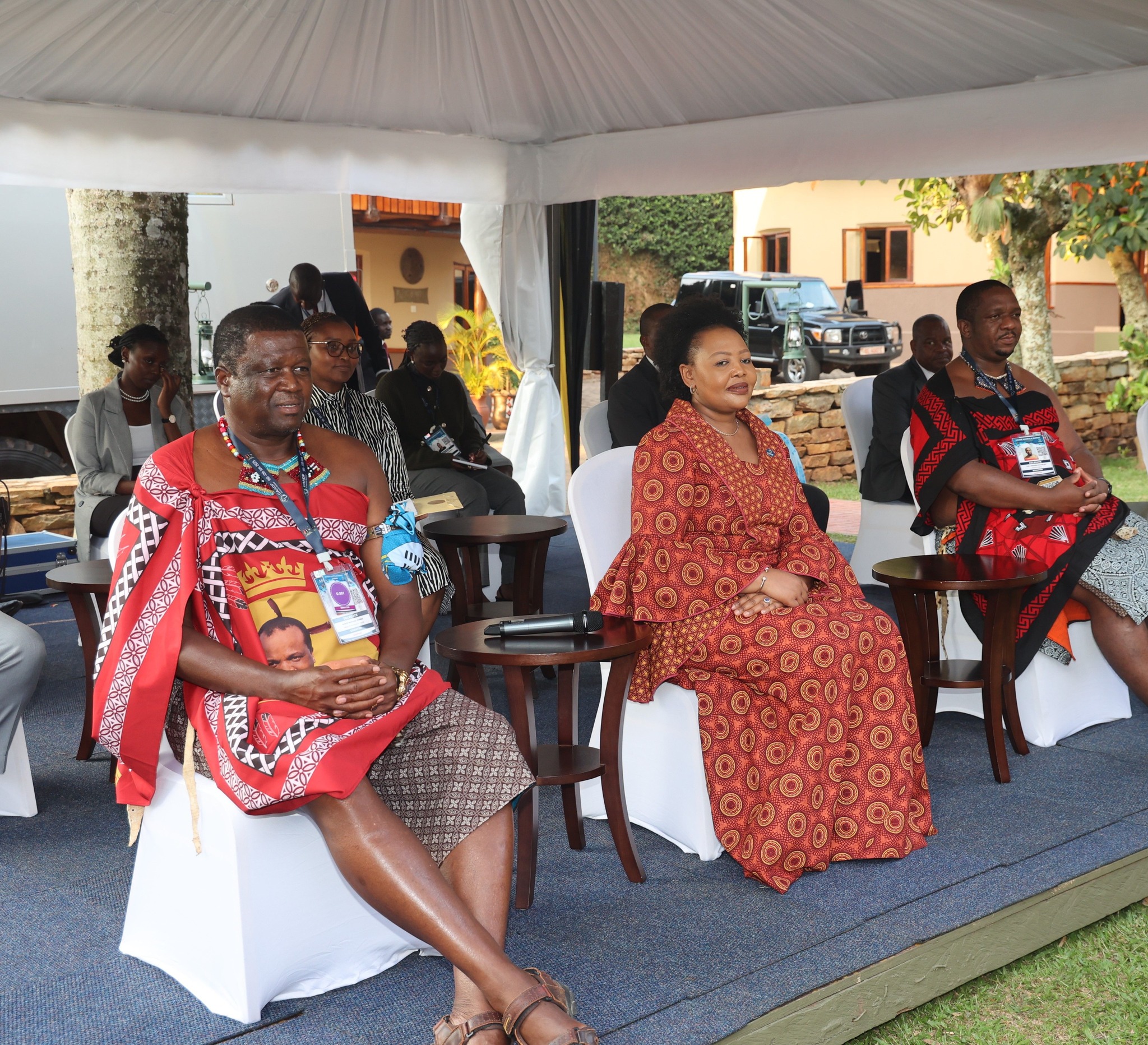
Prime Minister Dlamini expressed his appreciation for Museveni’s insights on Africa’s potential, particularly regarding the continent’s reliance on exporting raw materials without benefitting from value addition. The PM praised Museveni’s impactful opening speech at the summit, which emphasized reducing wastage and maximizing Africa’s resources.
Discussions also touched on Eswatini’s ventures in agriculture, including its sugar industry and budding coffee production. Museveni’s interest in these areas underscored the need for collaboration to harness Africa’s vast opportunities.
Reflecting on the meeting, Prime Minister Dlamini said, “It was fascinating to engage with one of the world’s longest-serving presidents and to discover his interest in SiSwati culture. We commended His Excellency for his strong advocacy for food sovereignty and shared concerns about the rise in non-communicable diseases due to poor eating habits.”
The meeting reinforced the shared aspirations of Uganda and Eswatini for a self-reliant and healthier Africa, showcasing how cultural exchanges can foster deeper partnerships for development.

